Samsung refrigerators are renowned for their exceptional quality. But just like with any other refrigerator brand , there could be an issue where the fridge freezes up. This is a frustrating problem, especially when you find spoiled food and frozen fruits and veggies.
If your Samsung refrigerator freezes up, several factors may be the culprit. This article will discuss the top 5.
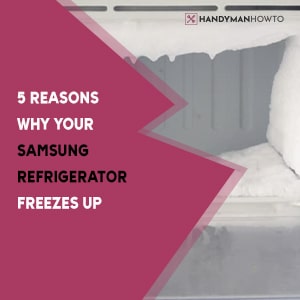
In addition, whether it’s due to low-temperature settings, blocked air vents, a faulty temperature sensor, a damaged door gasket, or a defective defrost system, we’ll share practical solutions to help you get your refrigerator back in order.
Frozen Fridge 101
When the temperature inside the refrigerator gets too low, the contents inside begin to freeze — an issue known as a frozen fridge.
One of the most obvious signs of a freezing Samsung fridge is frozen food. If your food is solidly frozen when it shouldn’t be, the temperature inside the refrigerator is too low.
Low temperatures also lead to ice buildup on the walls, shelves, or drawers.
As it attempts to maintain the low temperature, a freezing Samsung refrigerator will probably make unusual noises. When the fridge is operating more vigorously than usual, most parts are under extreme pressure, and some begin to hum or buzz.
As mentioned, your Samsung refrigerator will run nonstop to keep the temperature low. Unfortunately, this will result in excessive wear and tear on the refrigerator’s components, as well as higher energy bills.
You must resolve this freezing problem as quickly as possible, and the first step is to identify what’s causing it.
Let’s prevent future damage to your refrigerator and ensure your food stays fresh and safe.
5 Reasons Why Your Samsung Refrigerator Freezes Up
There are five reasons for а freezing fridge. Let’s break down each.
Temperature Settings Are Too Low & Cause the Samsung Refrigerator to Freeze
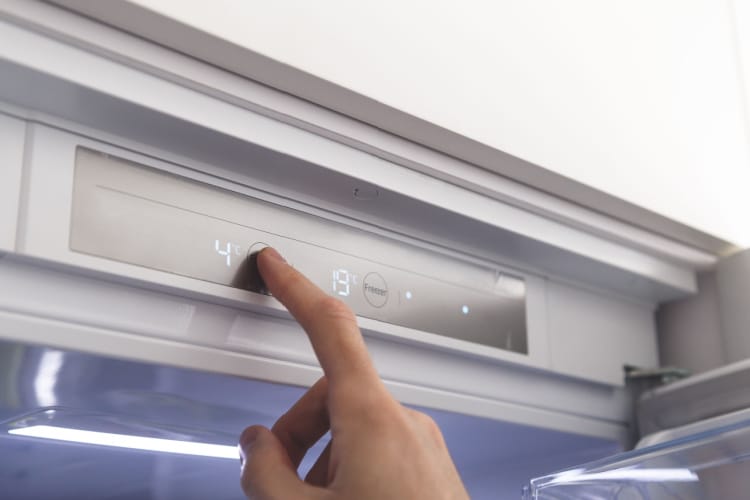
Low-temperature settings could cause a Samsung fridge to freeze up. If the temperature is set too low, the refrigerator will over-cool, freezing up everything.
The Food and Drug Administration (FDA) recommends a fridge temperature of 40°F (4°C) or lower. The appliance may freeze if the temperature is adjusted substantially lower than 40°F (4°C).
So if you notice that the fridge’s contents are freezing, adjust the temperature setting and monitor the temperature with a thermometer. If the freezing issue continues, the problem lies somewhere else.
The Ice Formation Is Due to Blocked Air Vents
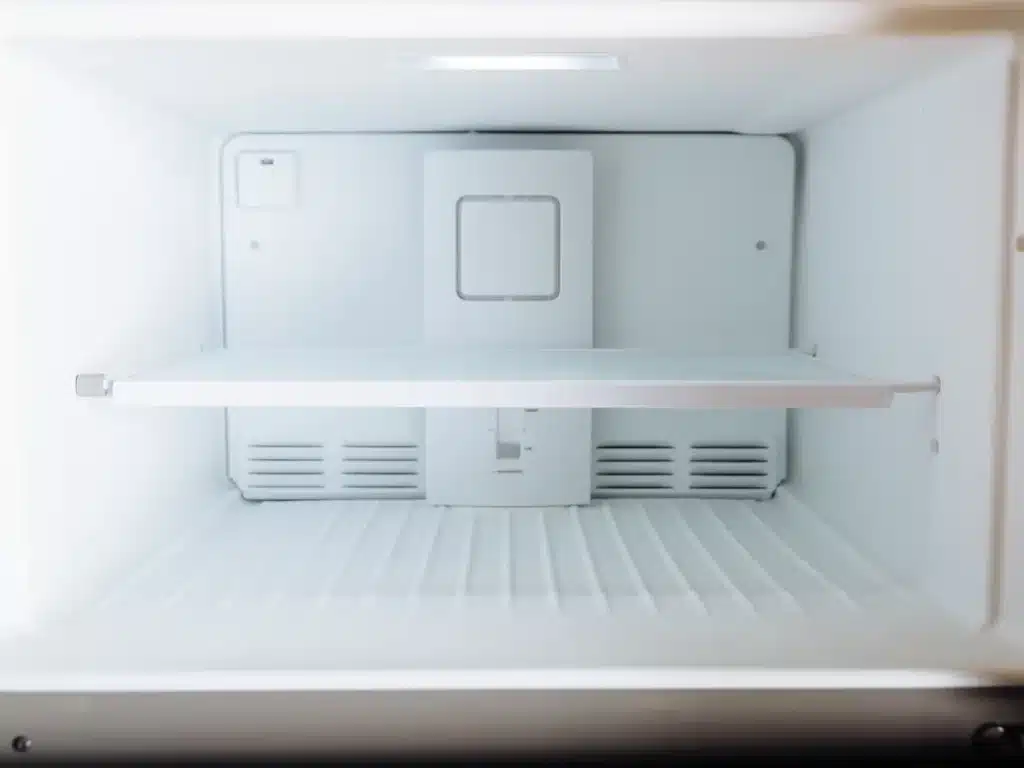
Air vents circulate cold air throughout the refrigerator.
Overfilling the fridge with food will block the air vents and prevent cold air from properly spreading. Ice or dirt accumulation on the air vents will lead to the same issue.
Blocked air vents will force the fridge to work harder than necessary, resulting in excessive cooling and freezing.
Check and clear blockages in the air vents regularly to keep your Samsung fridge from freezing. This includes cleaning the air vents, reordering food items to ensure proper airflow, and defrosting the fridge to clear any ice buildup. Furthermore, check that the fridge door is correctly sealed to prevent warm air from entering the fridge compartment and affecting the cooling system.
The Temperature Sensor Is Faulty and Causes the Fridge to Freeze Up
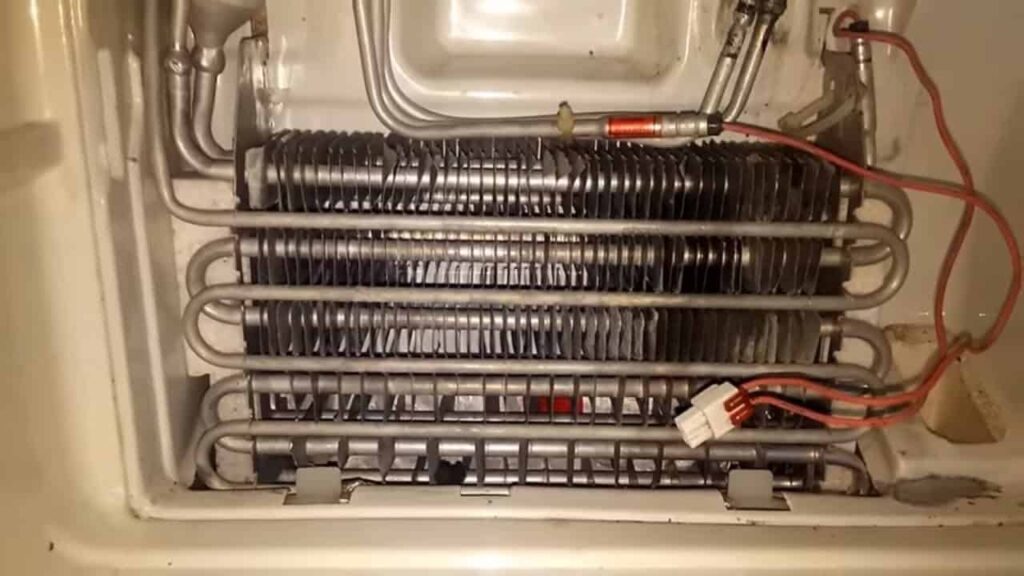
The temperature sensor monitors the temperature within the refrigerator compartment and sends signals to the thermostat to adjust the cooling. If the temperature sensor is malfunctioning, it may not be able to accurately detect the temperature, making the fridge run at a lower temperature than necessary, leading to excessive cooling and freezing.
If you believe a faulty temperature sensor is causing your Samsung refrigerator to freeze, you should contact a professional repair specialist to diagnose and repair the problem. In some circumstances, you may need to purchase a new temperature sensor.
The Door Gasket Is Damaged and Causes the Fridge to Overcool and Freeze
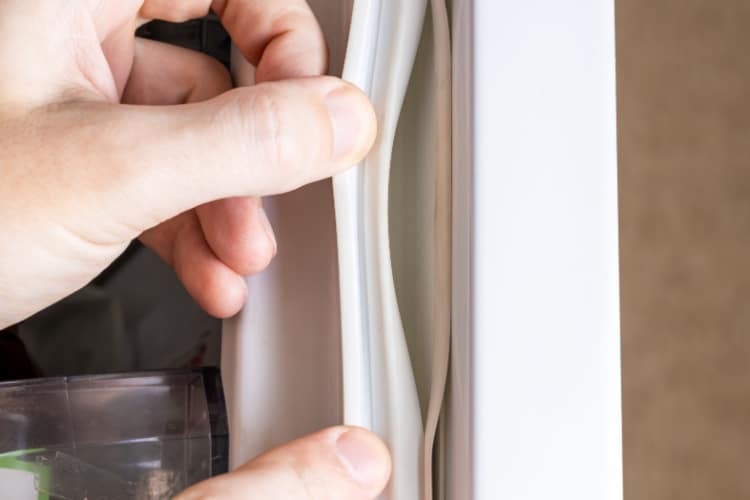
The Samsung refrigerator’s door gasket is responsible for sealing the fridge door and keeping the cold air inside. If the door gasket is damaged, it won’t seal the door properly, causing cold air to escape the fridge and warm air to enter.
When warm air enters the refrigerator, the sensor detects it and instructs the fridge to work harder to maintain the set temperature, leading to even lower temperatures and freezing. To fix this issue, you’ll need to replace the door gasket. You can contact Samsung customer support to order a replacement door gasket and get installation instructions.
The Defrost System Is Faulty and Causes the Fridge to Freeze Up
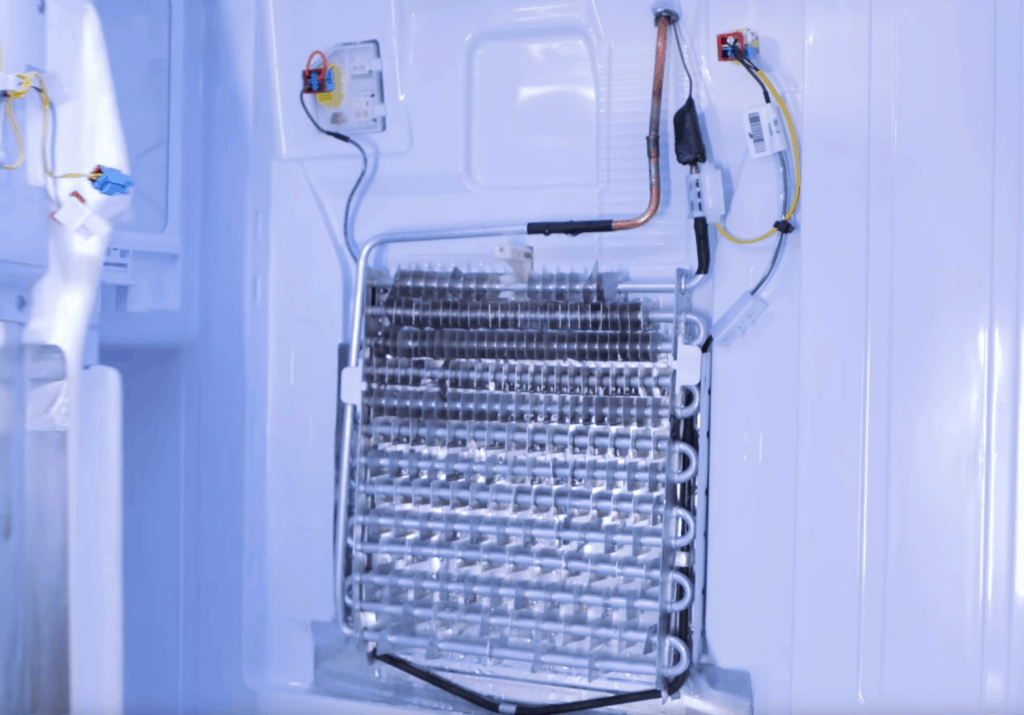
The defrost system in your Samsung refrigerator is in charge of melting the ice that builds up on the evaporator coils inside. If the defrost system fails, the ice won’t melt effectively and will build up and block the air vents inside the refrigerator.
When the air vents are obstructed, cold air cannot circulate, and the fridge freezes. To resolve this issue, you must replace the faulty defrost system. Contact Samsung’s customer service to purchase a replacement defrost system and get installation instructions.
Tips and Tricks for Preventing a Samsung Fridge From Freezing Everything Inside
Now that we know the problems that could lead to freezing, let’s share some tips and tricks to avoid this from happening again.
First, don’t stuff the fridge too much. The food will obstruct the air vents and hinder the proper flow of cold air, which causes uneven cooling and freezing. Leave sufficient space between each item to ensure optimal airflow in the refrigerator.
Second, remember to shut the refrigerator door properly. When you open the fridge, warm air enters the compartment, making the appliance work harder to maintain the right temperature. If warm air continues to “leak” into the refrigerator, it’ll eventually lead to overcooling and freezing.
Third, make sure the refrigerator’s temperature setting is at the right level. You can check the temperature inside the fridge using a thermometer to ensure it stays within the specified range.
Fourth, frequently inspect and maintain the refrigerator’s air vents and remove dust, food particles, or ice buildup. This step will guarantee that cold air is appropriately distributed within the appliance.
Lastly, schedule routine maintenance checks with a skilled repair technician to ensure the refrigerator operates correctly and that you can address any potential issues on time.
Conclusion
A Samsung refrigerator that freezes everything within is an annoying issue
Overall, there are five potential causes for this issue: low-temperature settings, blocked air vents, a faulty defrost system, and a malfunctioning temperature sensor.
You can prevent the fridge from freezing by avoiding overloading it, cleaning the buildup of ice, dirt, or food residue, repairing any broken or malfunctioning parts, and doing regular maintenance checks.
If you cannot diagnose and fix the issue on your own, it’s essential to contact a professional repair technician to help you address the problem.